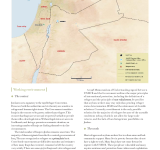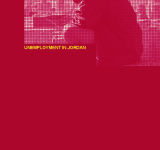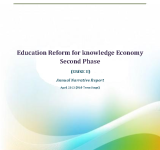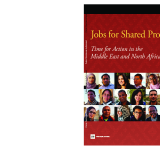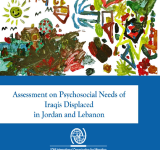والخدمات
This pilot study report was initiated by the European Training Foundation (ETF);; in close cooperation with the National Center for Human Resources Development (NCHRD) in Jordan;; in the framework of the ETF multiannual project Observatory Function Development in Jordan. The focus of this report is unemployment. However;; considering that unemployment information in itself should not be used or analysed in isolation from other indicators or data;; the report begins by providing an overview of the general labour market situation in Jordan. After the main data on employment by sector;; age;; gender and level of education are presented;; on the basis of the available information;; the specific cases of non-Jordanian employees and employment in the informal economy are highlighted as topics requiring special attention in the Jordanian labour market. In conclusion;; two groups of recommendations are proposed: (i) technical recommendations to main information providers for improving the quality of the information collected;; and (ii) a set of policy recommendations for tackling unemployment. These recommendations are intended to support policymakers in their commitment and willingness to adapt both the formal and informal education and training system and the whole labour market in Jordan.
The second phase of the Program Education Reform for the Knowledge Economy Program (ERfKE II) continues to build on the achievements of the first phase and follow the same implementation arrangements that have proven to be successful in (ERfKE I);; and in the same time;; focuses on schools as the locus of change as well as on the need to enhance capacity building at the central and field levels. The development objective of (ERfKE II) is to provide students enrolled in pre-tertiary education institutions in Jordan with increased levels of skills to participate in knowledge economy. Also the Mid-Term review highlighted the concrete progress achieved by (ERfKE II) in several key areas related to policy development;; quality of education interventions and school construction;; and identified the key issues as a summary of the overall progress that will be tackled and addressed during the remaining stage of implementation.
Assessment of Health Needs and Living Conditions of Migrants in Jordan 2011-2012 is a cross sectional study conducted by International Organization for Migration IOM Jordan in collaboration with the Jordanian Ministry of Health to provide baseline information about health needs and challenges that affect different migrant groups in Jordan to assist the government and relevant parties to develop policy and strategies to manage migrant's health. According to the results of the study;; a number of recommendations were emerged which would be the guidance for the government and relevant parties in developing policy and strategies to improve and manage migrant's health.
This report is an assessment on the psychosocial needs of Iraqis displaced in Jordan and Lebanon. The assessment included mapping;; structured interviews with stakeholders and 200 families;; and direct observations through an innovative methodology based on Hertz’s migration paradigms with a non medical focus. The results highlighted the necessity for psychosocial interventions;; since most families were rebounding in their experience of displacement;; and the challenges posed to service providers by the first massive urban displacement crisis.
